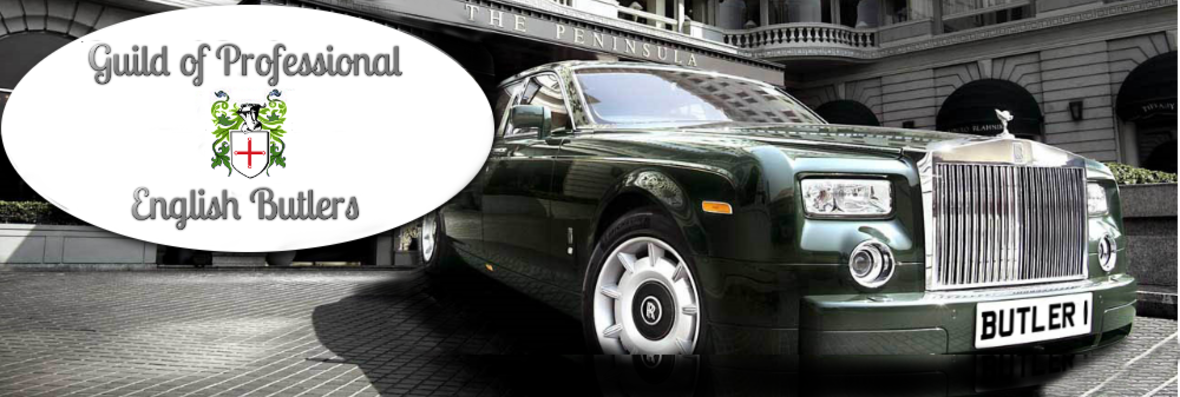

Hotel Butler Service
History of Butler Service
With the creation of large passenger aircraft in the 1960’s came the beginning of mass tourism and, therefore, the necessity for many new hotels.
Building the hotels was not a problem, staffing the hotels was an entirely different matter. Quite simply there was not enough experienced staff available to fill the positions created.
Many hotels had to employ inexperienced untrained staff which of course led to complaints from guests but there was little that the hotels could do to resolve these complaints since they did not have the time or personnel to train the staff they employed, but rather just threw them in at the deep end hoping that the staff they employed would eventually get it right.
The person that bore the brunt of all these complaints was usually the receptionist, in most hotels they were the person with the most guest contact due to the guest having to give their room key to the receptionist every time they went out and collect it again when they returned. An ideal time for the guest to unburden themselves of all the problems and issues that they had in the hotel.
With the advent of computerized check-in and check-out as well as the introduction of key-cards rather than normal keys on large key tags the relationship between the receptionist and guest was lost.
The guest had no one person to go to with their complaints and was passed from one department to another with no-one taking responsibility for any problem outside of their own department.
Many hotels created the position of Guest Relations Manager; this did not solve the problem since the Guest Relations Manager had little or no authority to resolve the underlying issue of inexperienced, untrained staff.
In 1990 pagers/beepers became more available and this meant that they could be issued to a wider number of staff, at the same time telephone technology improved so that the guest could now push a speed dial button on the ‘phone in their suite which would send the room number and name of the guest direct to the pager/beeper held by the staff member.
At this point it now became feasible to introduce butler service to hotels.
The Lanesbourough in London was the first hotel in Europe to introduce butler service to all its guests in 1990.
With the introduction of butler service many of the guest’s issues and problems were resolved since the butlers were trained to be multi-skilled and multi-focused so that they could deal with not only the guest’s requests and needs but also any issue or problem that the guest encountered.
The butlers had a direct line to every Department Head as well as procedures for reporting to Senior Management any issues that could not be resolved at a Department Head level.
Because of the close relationship between the guest and ‘their butler’ many of the problems and issues could be prevented as well as a very high service level achieved since the butler could build up knowledge of each guest’s preferences, likes and dislikes.
One of the reasons that butler service has become so successful is because the guest now has a single person to relate to for all their requests, needs, issues and problems and the butler is able to provide a seamless service as well as anticipate the guest’s needs.
Over the years butler service has embraced new and improved technology and now we have resort hotels that provide the guest with a dedicated cell-phone as soon as they check-in so that wherever they are in the resort they can call ‘their butler’ for a cool drink by the pool or the book left in their villa.
Some butlers now have iPhones which are programmed with every restaurant menu, wine list, special offer in the spa etc., as well as each guest’s preferences or special requests.
Even with all the technology butler service comes back to that one very simple thing -
One person taking care of another, with the goal of total ‘Guest Satisfaction’.
Why hotels have Butler Service
Increased Room Rate
Hotels that provide Butler Service to their guests report that there is a significant rise in the Average Daily Rate (ADR). This rise is due to the fact that guests who are staying in a suite with Butler Service expect to pay a premium for the extra level of service provided.
Guests who are paying a premium for a suite or villa now expect that Butler Service will be provided.
For some years now Butler Service has become an important factor in why guests choose a hotel since for many guests the service level they expect to receive is what makes them decide which hotel they will book.
Service is the differentiator between one hotel and another, Butler Service takes service to its highest level.
Repeat Guest Ratio
Most hotels find that the repeat guest ratio is very high for those guests who have previously stayed in accommodation that has Butler Service provided.
The reason for this is due to the fact that the guests build up a relationship with ‘their butler’. Many guests, once they have this relationship and have experienced the very high level of personalised service provided by ‘their butler’, return again and again to the same hotel or to a hotel of the same group.
Guest Satisfaction
Hotels that provide five-star Butler Service all report a high level of guest satisfaction in their after-stay surveys.
A satisfied guest is a guest that will return and, most importantly, provide the hotel with very valuable ‘word of mouth marketing’ to their friends, family and work colleagues.
Hotels in their brochures and media marketing may describe the ‘service’ they provide but to hear about service by someone who has experienced it is a much more powerful message.
